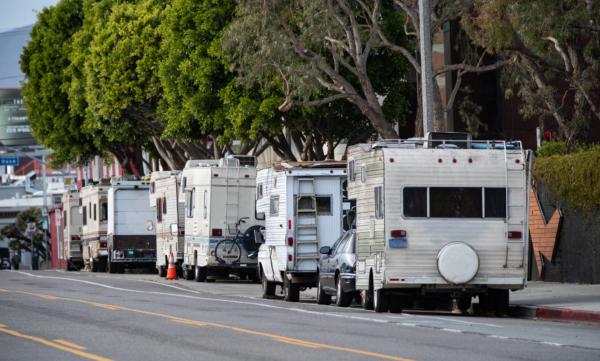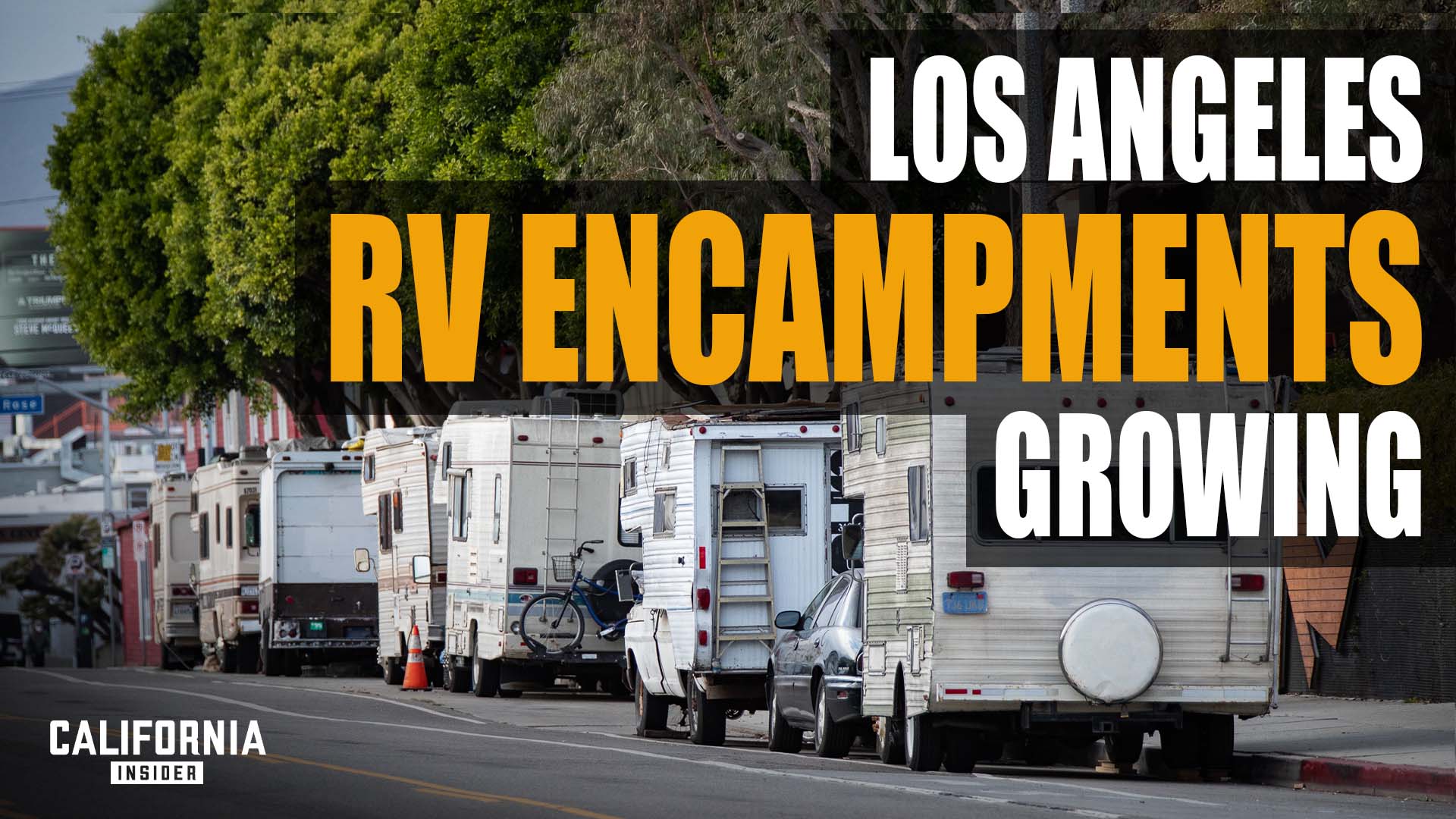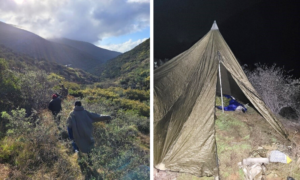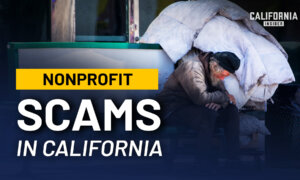More than 9,280 homeless people live in about 6,800 recreational vehicles (RV) in Los Angeles County, according to a point-in-time count released last month by the Los Angeles Homeless Services Authority.
Normally, RV service providers who also collect sewage from rented-out RVs and mobile toilets are required to obtain a license to handle wastewater, and sewage is required to be dumped at a licensed facility. But homeless individuals who park such RVs in makeshift encampments along urban streets aren’t following such regulations.
And so, all of that wastewater and sewage is being released into storm drains and directly contaminating the ocean and local beaches, Barry Coe, who used to run an RV business, said in a recent interview on EpochTV’s “California Insider.”
“Nine thousand gallons [of sewage] a month are going into the wastewater system. That’s the storm drain system, not the sewer,” Mr. Coe said, regarding the monthly wastewater of just the 600 RVs being used by homeless persons in the Harbor Gateway neighborhood—located in the far southern part of Los Angeles—where he lives.
“The storm drain carries it straight to Santa Monica Bay.”
Those numbers translate to nearly 102,000 gallons, or about the volume of 11 large U-Haul trucks of sewage each month, Mr. Coe estimates.
“I’m not talking about just going into the water. You’ve got to remember, the water percolates into the sand,“ he said. ”You take a walk on the beach, if there’s hazardous materials or bacteria, you’re going to get this stuff on your body.”

A homeless encampment in the Venice area of Los Angeles on Jan. 27, 2021. (John Fredricks/The Epoch Times)
While it’s common for local health departments to close beaches following rainstorms, when litter, trash, chemicals, and debris are washed into the ocean from storm drains, the prolonged rainy season and the excessive amount of water pollution have led to more beaches in L.A. County closing for longer periods this year. The closings have included Santa Monica Pier in Santa Monica, Mothers Beach in Marina del Rey, and over a dozen others, according to the County of Los Angeles Department of Public Health.
The explosion of motorhomes in the city not only leads to water pollution but also affects residents’ well-being and quality of life, Mr. Coe said. Residents may find RVs in no-parking zones that block regular traffic but can’t get them towed away because of city contracts with towing companies regarding hazardous material.
Additionally, he said that a majority of the motorhomes are inoperable and only serve as a living space.
“They’re not functioning so they become shelter, but they’re on the street,” he said. “It puts them in a gray area of the law in regard to camping. ... It’s a very difficult situation to address.”
Meanwhile, some people are renting out the motorhomes to those who cannot afford regular housing and are committing various crimes in the process, Mr. Coe said.
“There are people that are buying these things from a wrecking yard ... and they tow them out to the streets, and they control the turf,” he said. “If you don’t pay the rent or the protection money, they will burn you out.”
Solution
According to Mr. Coe, officials need to target the growing homelessness crisis at its root—by dealing with drug and mental health issues—instead of focusing on temporary or permanent housing.
“Because maybe that’s how they got there in the first place. And we shouldn’t be doing it in reverse,” he said.
Many homeless people have compelling life stories—which people have compassion for—but it’s important not to be blinded by emotions regarding the issue, Mr. Coe said.

















